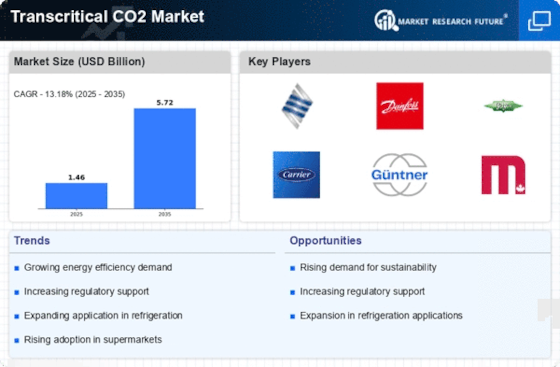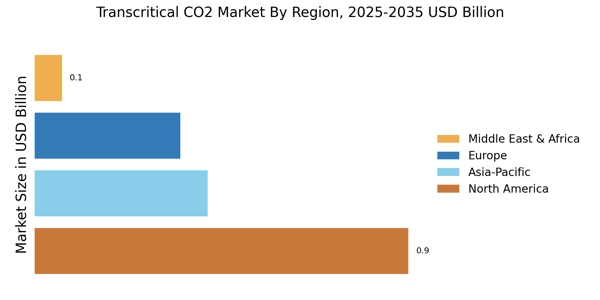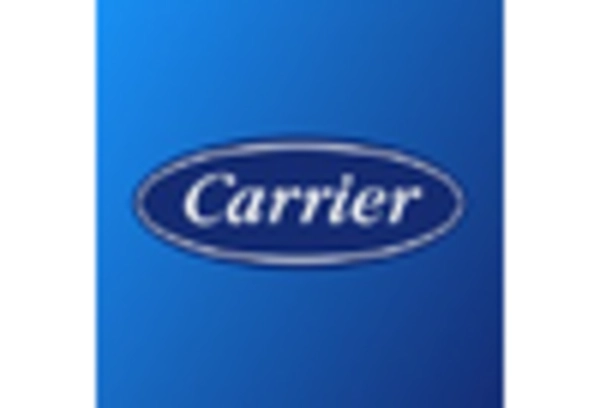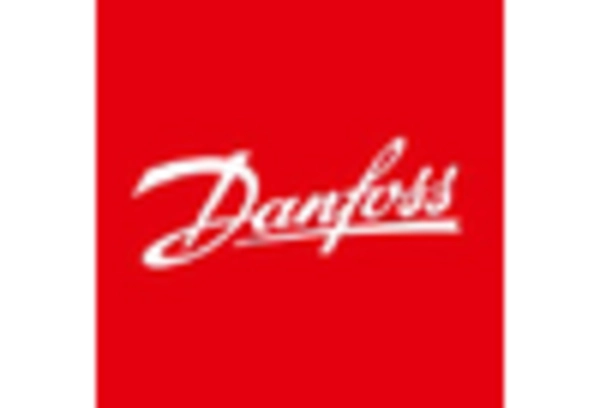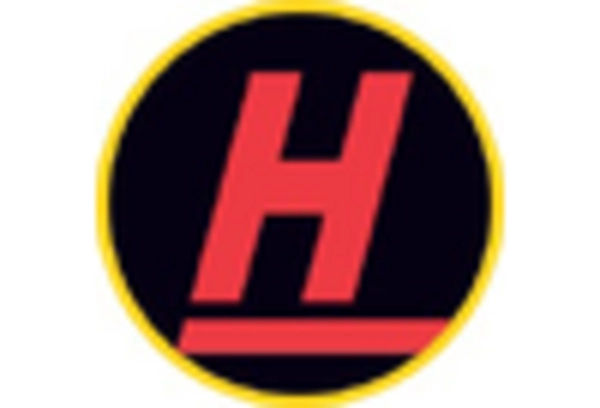Expansion of Cold Chain Logistics
The Transcritical CO2 Market is poised for growth due to the expansion of cold chain logistics, which is essential for preserving the quality of perishable goods. As the demand for fresh food and pharmaceuticals increases, efficient refrigeration systems become critical. Transcritical CO2 systems offer reliable and energy-efficient solutions for cold chain applications, making them an attractive option for logistics providers. The increasing investment in cold chain infrastructure is likely to drive the adoption of transcritical CO2 systems, as companies seek to enhance their operational efficiency while meeting consumer demands for quality and sustainability.
Growing Awareness of Climate Change
The Transcritical CO2 Market is increasingly shaped by the growing awareness of climate change and its impacts. As consumers and businesses become more conscious of their carbon footprints, there is a rising preference for sustainable refrigeration solutions. Transcritical CO2 systems, which utilize a natural refrigerant with a low environmental impact, are gaining traction as a preferred choice. This shift in consumer behavior is likely to encourage manufacturers to invest in transcritical CO2 technologies, thereby expanding the market. The alignment of consumer preferences with environmental sustainability is expected to create new opportunities for growth in the transcritical CO2 market.
Rising Demand for Energy Efficiency
The Transcritical CO2 Market is experiencing a notable increase in demand for energy-efficient refrigeration and heating solutions. As energy costs continue to rise, businesses and consumers are seeking alternatives that reduce energy consumption. Transcritical CO2 systems, known for their high efficiency, are becoming increasingly popular in commercial refrigeration applications. According to recent data, these systems can achieve energy savings of up to 30% compared to traditional refrigerants. This trend is likely to drive the adoption of transcritical CO2 systems across various sectors, including food retail and industrial applications, thereby enhancing the overall market growth.
Environmental Regulations and Standards
The Transcritical CO2 Market is significantly influenced by stringent environmental regulations aimed at reducing greenhouse gas emissions. Governments worldwide are implementing policies that encourage the use of low-impact refrigerants, such as CO2, which has a negligible global warming potential. The European Union's F-Gas Regulation, for instance, has led to a marked shift towards natural refrigerants, including CO2. This regulatory support is expected to bolster the market, as companies strive to comply with these standards while also enhancing their sustainability profiles. The increasing focus on environmental responsibility is likely to propel the adoption of transcritical CO2 systems in various applications.
Technological Innovations in Refrigeration
The Transcritical CO2 Market is benefiting from ongoing technological innovations that enhance the performance and efficiency of CO2 refrigeration systems. Advances in compressor technology, heat exchangers, and system controls are making transcritical CO2 systems more viable for a broader range of applications. For instance, the development of efficient gas cooler designs has improved the overall efficiency of these systems, making them more attractive to end-users. As technology continues to evolve, it is anticipated that the market will see increased penetration in sectors such as food processing and commercial refrigeration, further driving growth.


